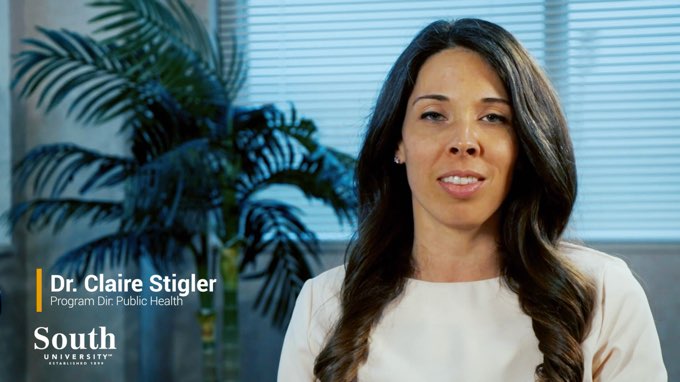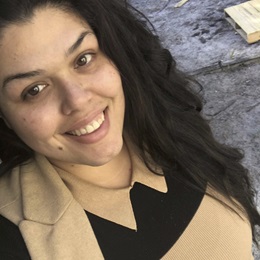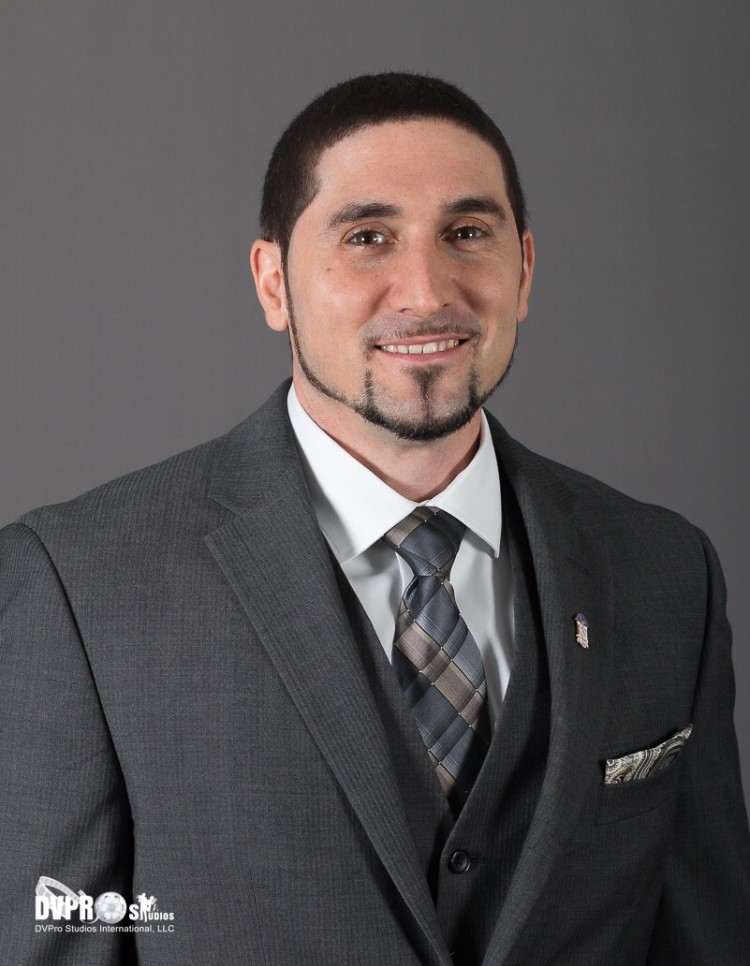Master of Public Health

Request Information
Master of Public Health

As part of the public health courses at South University, you’ll learn about public health, and its many topics on a local, national, and international scale. During the Master’s Degree in Public Health class discussions, research, assignments, and one-on-one interactions with the public health faculty, you’ll have the opportunity to learn how to handle health-related issues like controlling infectious diseases, improving access to healthcare, and reducing environmental hazards. The Master’s degree program at the Montgomery campus culminates in a practicum experience in which you apply your new knowledge, skills, and abilities around public health science to a real-world public health setting, such as a government or social service agency, community or public health organization, or other approved business*.
*South University does not promise or guarantee licensure, employment, or salary amounts.
Admission Requirements
Procedure for Admission to the Master of Public Health
The criteria used in determining admissions to the Master of Public Health degree program include:
- Completion of a bachelor's degree from an accredited institution, with a cumulative grade point average (CGPA) of at least 2.5 (on a scale of 4.0) OR
- An earned graduate degree from an accredited institution with a CGPA of 3.0 or higher.
- Applicants must complete an undergraduate statistics course or equivalent (as approved by the Public Health Department Chair/Program Director) with a grade of "C" or better prior to admission to the Master of Public Health program.
- Submission of official transcripts from all postsecondary institutions attended within 5 weeks of the class start date (refer to Conditional Acceptance).
For additional admissions information please see the admissions section here.
Career Outlook
These are some of the career options* you can explore when you have earned your degree:
Medical and Health Services Supervisors/Managers
Community Health Workers
Medical Administrative or Office Staff
*South University does not promise or guarantee licensure, employment, or salary amounts.
MPH at South University is an applicant for accreditation by the Council on Education for Public Health. The accreditation review will only address the MPH degree at South University. Other degrees and areas of study offered by South University will not be included in the unit of accreditation review.
Course Requirements
Outcomes
Upon completion of the program, students will be able to:
- Explain the history, philosophy, and core functions of Public Health.
- Apply evidence-based approaches that utilize quantitative and qualitative methods to inform program planning, implementation, and evaluation.
- Apply evidence-based approaches that utilize quantitative and qualitative methods to inform program planning, implementation, and evaluation.
- Evaluate the organization, structure, and function of Public Health and healthcare systems both nationally and globally.
- Evaluate the organization, structure, and function of Public Health and healthcare systems both nationally and globally.
- Design culturally sensitive community-based health programs that address racism, structural bias, and social determinants of health to achieve health equity.
- Design culturally sensitive community-based health programs that address racism, structural bias, and social determinants of health to achieve health equity.
- Develop written and oral public health content that is culturally competent and audience-appropriate.
- Develop written and oral public health content that is culturally competent and audience-appropriate.
- Apply leadership skills to build partnerships or coalitions that advocate for policies and programs to address community health challenges.
- Apply leadership skills to build partnerships or coalitions that advocate for policies and programs to address community health challenges.
What's New
Latest News and Blogs

Feb 25, 2026
Alumni Spotlight: Applying Paralegal Skills Across Roles
Meet Elizabeth Bloom and learn how she used the skills she learned with her paralegal degree to serve her throughout her career.

Feb 24, 2026
The Growing Need for Mental Health Counselors
Learn why the need for mental health counselors is growing, how high the demand is, and the types of valuable services they provide to clients.

Feb 18, 2026
PTA Alumni Spotlight: Veteran Leads Home Health Agency
See how South University helped US military veteran Waddie Freeman grow his career in healthcare, from becoming a PTA to running a home health agency.

Feb 17, 2026
The Future of Home Care: Trends and Predictions
Learn what home care trends are driving growth in home health care, including an aging population, new technology, and evolving payment models.

Feb 10, 2026
Popular Degrees for Veterans
Learn what degrees are a common choice for veterans as they set out to achieve their goals and transition smoothly from military member to civilian.

Feb 10, 2026
Assistant Dean Helps Patient Receive Treatment
Karen M. Wilcox, the Assistant Dean of the graduate programs, used her expertise to help one of her patients detect and receive treatment for cancer.
Outstanding Education for Remarkable Careers
We're committed to helping our graduates make impact in their professional and personal lives. We applaud our nursing alumni and the difference they make. Check out what some of our graduates have to say.





